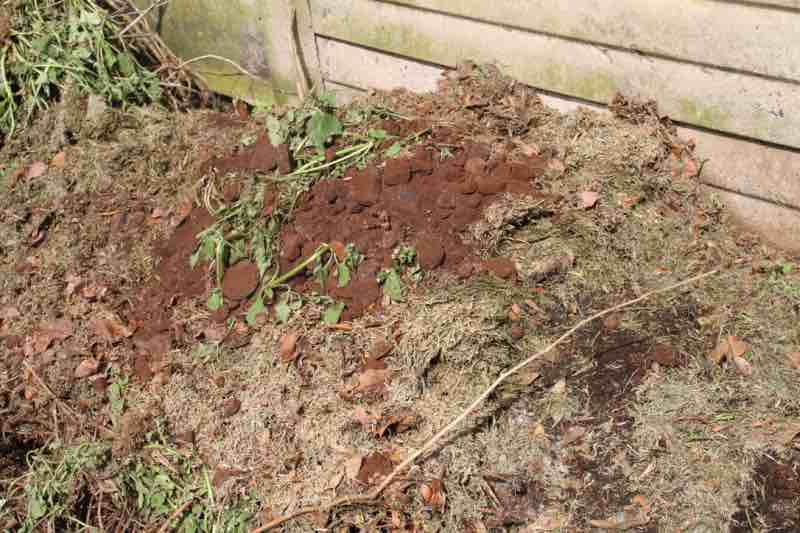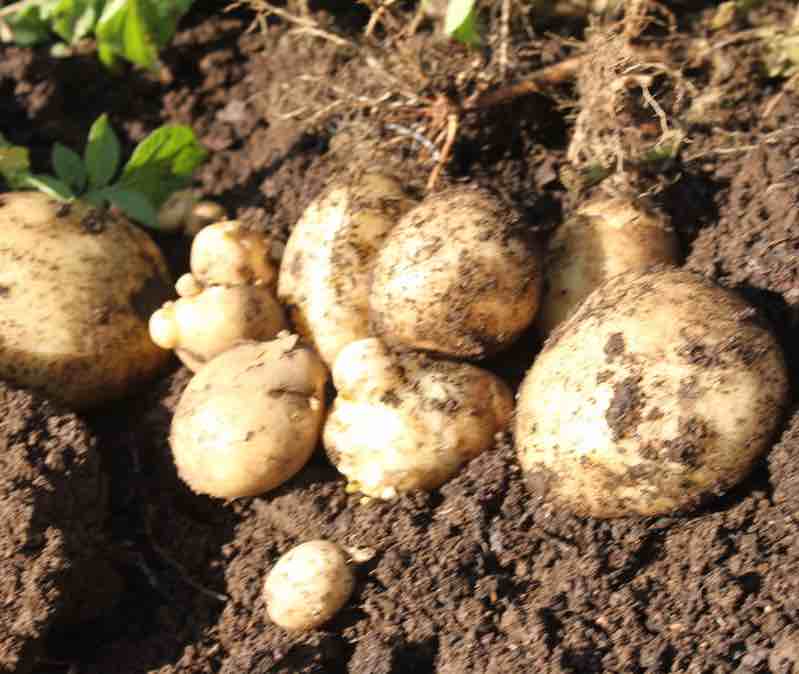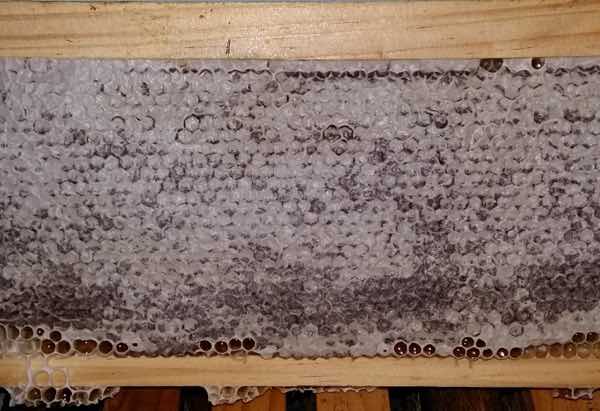- Bernard Preston homepage
- Our green garden
- Coffee Grounds in the Garden
Coffee grounds in the garden
Coffee grounds in the garden will reputedly help with vegetable yields but some research refutes this; homesteaders should do their own experiments.
I confess when I joined Reko Hilton[3] nearly a year ago I was initially miffed. I believe I’m justifiably proud of our green home but I found myself surrounded by market gardeners who simply did it even better. Each has little secrets that have brought them success.
Most are happy to share the joys that emerge from their organic gardens; I found myself on a big learning curve. The free range chickens were more tender than mine, though the egg-yolks not as yellow; the cauliflower heads were three times the size and I’ve never managed to grow garlic successfully.

Coffee grounds turned out to be one of those little secrets. I have never seen veggies like that before. So I started tossing our own around the potato plants, together with ash from the wood-stove.
So convinced was I of the benefits that we started collecting bucket loads of grounds from the local coffee shop.
I should have asked for more information; my guru says it’s quite acidic and she rather puts the coffee grounds on the compost heap. The wood-ash has an alkaline nature, balancing the pH.
So we watch with interest; certainly these are the most beautiful potato plants I have ever grown but the proof of the pudding is in the eating obviously, not in how stunning the haulm looks. The flowers are over and last evening we went mining for the first spud; like all veggies, straight from the ground to the pot it was simply marvellous and surprisingly large.

Potatoes get a lot of flak in our obese world; from cold-storage they are certainly fattening. It is interesting though that new spuds have about half the digestible starch. Even many diabetics can enjoy them provided they keep what is known as the glycemic load down; don’t eat too much.
There's another good reason to grow your own potatoes, by the way. Farmers use a very toxic herbicide called Paraquat to kill off the haulm just before harvesting; it is one of the causes of Parkinson's Disease.
It’s our starchy season; the mealies are thriving but it's a challenge to have the first cob by Christmas. That happens only occasionally and certainly not this year; it has been a very cold spring and all the veggies are behind.
 Undoubtedly the best way to enjoy honey.
Undoubtedly the best way to enjoy honey.And the honey has been pouring in. You would think we would be enormous with all the carbs we eat; sourdough bread baked every day, new potatoes and mealiemeal porridge. Corn on the cob, fresh peas and various green beans are favourites too but no, we've not put on an ounce.
Interesting new research published last month in the American Journal of Clinical Nutrition explains why. Says the lead author, Prof David Ludwig from Harvard Medical School, it is modern refined glycemic foods that disturb the two hormones produced by the pancreas that set us up for obesity and diabetes, rather than whole carbs.
Refined foods tend to be tasteless so heaped spoonfuls of sugar and salt are usually added too. He and his international team of researchers are calling it the “carbohydrate-insulin model.”
Other research published in the European Journal of Clinical Nutrition found astonishingly that unprocessed honey from local beekeepers in Germany had a low glycemic index below 55; but once commercial bottlers got hold of it the GI becomes very high.
One exception is “forest honey” which has a little-known highly glycemic sugar.
There’s still time to plant more climbing beans; this week it is Witsa, limas and Scarlet Runners. And I am going to try a few favas but they do best in autumn and winter.
Wholesome fresh vegetables from your own garden take a lot of beating both for flavour and good nutrition but it’s a canny business; try some coffee grounds. When folk start to talk about hunger in the world you will be able to chip in.
"Scientists have identified approximately 1,000 antioxidants in unprocessed coffee beans, and hundreds more develop during the roasting process."
- One Medical.com
Collecting coffee grounds, growing beans and planting your own potatoes may seem very time-consuming; hard work too.
Personally I'd prefer spending the time growing our own food and getting exercise in the garden than consulting doctors and pumping iron at the gym. We live and die by the choices we make.
The vitamin D from sunshine is also profoundly important for optimal health; a deficiency is described by scientists as being the most serious pandemic on the planet in this century.
"There is increasing evidence that exposure to plants and green space and particularly to gardening, is beneficial to mental and physical health."
- Clinical Medicine (PMC6334070)[2]
Coffee grounds in the garden
Coffee grounds in the garden are slightly acidic but high in nitrogen.
When browsing use right click and "Open Link in New Tab" or you may get a bad gateway signal.
Newsletter
Our newsletter is entitled "create a cyan zone" at your home, preserving both yourself and Mother Earth for future generations; and the family too, of course. We promise not to spam you with daily emails promoting various products. You may get an occasional nudge to buy one of my books.
Here are the back issues.
- Lifestyle and ideal body weight
- What are ultra-processed foods?
- Investing in long-term health
- Diseases from plastic exposure
- Intensive lifestyle management for obesity has limited value
- A world largely devoid of Parkinson's Disease
- The impact of friendly bacteria in the tum on the prevention of cancer
- There's a hole in the bucket
- Everyone is talking about weight loss drugs
- Pull the sweet tooth
- If you suffer from heartburn plant a susu
- Refined maize meal and stunting
- Should agriculture and industry get priority for water and electricity?
- Nature is calling
- Mill your own flour
- Bake your own sourdough bread
- Microplastics from our water
- Alternative types of water storage
- Wear your clothes out
- Comfort foods
- Create a bee-friendly environment
- Go to bed slightly hungry
- Keep bees
- Blue zone folk are religious
- Reduce plastic waste
- Family is important
- What can go in compost?
- Grow broad beans for longevity
- Harvest and store sunshine
- Blue zone exercise
- Harvest and store your rainwater
- Create a cyan zone at your home
Did you find this page interesting? How about forwarding it to a friendly book or food junkie? Better still, a social media tick would help.
- Bernard Preston homepage
- Our green garden
- Coffee Grounds in the Garden
Address:
56 Groenekloof Rd,
Hilton, KZN
South Africa
Website:
https://www.bernard-preston.com